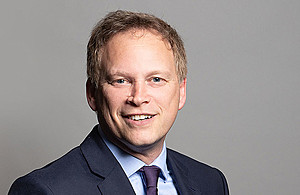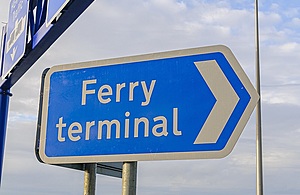- UK is one of 20 countries and global organisations, like the WHO, to pledge to give the world access to new vaccines and treatments
- Pledge follows calls from the PM and UK Ministers for greater global co-operation in fight against coronavirus
- UK will also virtually co-host new Coronavirus Global Response Summit on 4 May 2020
Countries from around the world today (Friday, 24 April) joined the UK in pledging to give everyone equal access to new coronavirus vaccines and treatments around the world. The move is aimed at boosting global supply of the vaccine, once one is approved for use, to help prevent a second wave of the pandemic.
At the World Health Organization virtual launch event today, First Secretary of State Dominic Raab joined the UN Secretary General, World Health Organization (WHO) Director General and the leaders from the 20 countries, including France, South Africa and Malaysia to pledge the UK’s support for the new “COV-access agreement”.
This is an unprecedented global agreement between international health organisations and countries. It follows calls from the UK for the countries to work together, including at last month’s G20 meeting.
The UK is one of the biggest supporters of the global effort to find a coronavirus vaccine, providing £250 million to international research on the disease to the Centre for Epidemic Preparedness Innovations. It is also one of the biggest supporters of the WHO and Gavi, the Global Vaccine Alliance, which distributes vaccines in the poorest countries.
UK scientists at Oxford and Imperial College London Universities are also leading efforts to develop a working vaccine. Human trials started this week in Oxford, and the government has given £42.5 million in funding to support clinical trials at both institutions.
The UK confirmed today that it will co-host a Coronavirus Global Response Summit on 4 May, aiming to raise £7 billion to develop vaccines, treatments and tests to help end the coronavirus pandemic.
It was also announced that the UK will host the major the Global Vaccines Summit virtually on the 4th June, to ensure Gavi is fully funded and at the heart of our efforts to ensure equitable access for any vaccine.
Speaking to other leaders in a video message alongside the UN Secretary General and WHO Director General this afternoon First Secretary of State Dominic Raab said:
The UK is already one of the biggest donors to the international COVID-19 response, and today we are proud to support the WHO’s Call to Action to bring global health partners together to accelerate progress toward a vaccine.
Video message from UN Secretary General, WHO Director General and First Secretary of State Dominic Raab
International Development Secretary Anne-Marie Trevelyan said:
British expertise and funding is already leading efforts to find a coronavirus vaccine and treatments, which will save lives in the UK and around the world.
Following calls from the Prime Minister it is great to see other nations working collectively in the fight against coronavirus.
Making sure vaccines, treatments, technologies are available in the most vulnerable countries is vital to ending the pandemic – keeping us, and the rest of the world safe from future infections.
“COV-access agreement”
The new commitment in the agreement follow continued international lobbying from the UK for more global co-operation on the pandemic, including at last week’s G20 finance and World Bank meetings, and includes pledges to:
- Provide access to new treatments, technologies and vaccines across the world
- Commit to an unprecedented level of international partnership on research and coordinate efforts to tackle the pandemic and reduce infections
- Reach collective decisions on responding to the pandemic, recognising that the virus’ spread in one country can affect all countries
- Learn from experience and adapt the global response
- Be accountable, to the most vulnerable communities and the whole world.
As part of this agreement the WHO also announced the appointment of two new Special Envoys to lead global co-operation on vaccine research and help ensure equal access to any successful vaccines. Sir Andrew Witty, the British former head of global drugs giant GSK was appointed alongside Dr. Ngozi Okonjo-Iweala, Board Chair of Gavi.
A new “COV-access Hub” was also announced by the WHO to support co-operation on the research, development and production of new vaccines, treatments and technologies to fight coronavirus.
Notes to Editors
The countries supporting the WHO-led global pledge today include the UK, France, Germany, Italy, Malaysia and South South Africa.
To date the UK has contributed £744 million to the international fight against coronavirus. This includes support for UK and international research into treatments and technologies and £250 million to the Centre for Epidemic Preparedness Innovations which funding international research to find a vaccine.
The Prime Minister announced the CEPI funding on the 26 March virtual G20 leaders meeting, calling on other leaders to collaborate on international research into a vaccine and ensure it could be made available to all.
The UK is also the largest supporter of Gavi, the Global Vaccine Alliance, which has immunized 760 million children in the world’s poorest countries, saving 13 million lives.
Earlier this week (21 April) Health Secretary Matt Hancock announced £20 million of Government support for clinical human trials into a vaccine run from Oxford University.
Earlier this month the UK government launched a new Vaccine Taskforce, led by Chief Scientific Adviser Sir Patrick Vallance and Deputy Chief Medical Officer Professor Jonathan van Tam, which will drive forward and co-ordinate efforts to research and produce a coronavirus vaccine, and make sure one is made available to the public as quickly as possible.
As well as supporting vaccine research in the UK, the Taskforce will build on the UK’s research and development expertise to support international efforts to find a coronavirus vaccine.

